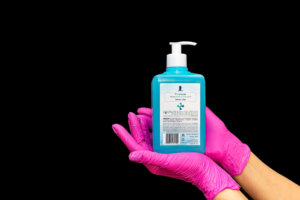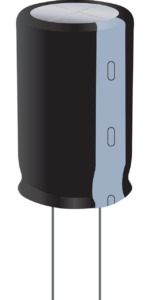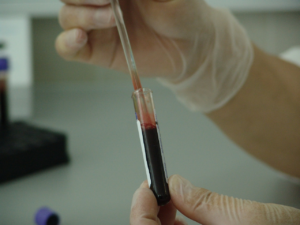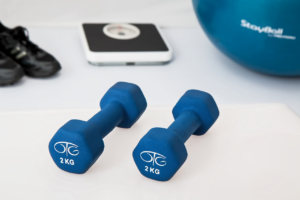Are you preparing to take the CNA (Certified Nursing Assistant) exam? Do you want to ensure that you pass on your first attempt? Look no further than the CNA Certified Nursing Assistant Exam Cram: Key Review Materials.
This guide is designed to provide you with the essential knowledge and test-taking strategies you need to succeed on the exam.
The CNA exam is a critical step in becoming a certified nursing assistant. It is a comprehensive test that covers a range of nursing concepts, skills, and practices.
Without proper preparation, it can be challenging to pass. However, with the help of the CNA Certified Nursing Assistant Exam Cram: Key Review Materials, you can feel confident and fully prepared to take on the exam.
This guide offers a concise and practical review of key nursing concepts, practice exams, and detailed explanations of important concepts. Additionally, it provides preparation and study strategies to help you make the most of your study time.
Key Takeaways
- The CNA exam consists of a written and clinical skills portion, with a minimum score of 70% required on both to pass.
- Key nursing concepts that CNAs are expected to perform include taking vital signs, administering medication, and providing emotional support.
- Effective preparation and study strategies, such as time management, note-taking, and practice exams, are important for success on the exam.
- Exam cram materials provide a concise review of key nursing concepts, preparation and study strategies, practice exams, and tips for success on the CNA exam.
Overview of the CNA Exam
Ready to ace the CNA exam? Let’s start by getting an overview of what to expect on test day!
The CNA exam is a two-part test that consists of a written and a clinical skills exam. The written exam is typically administered on a computer and includes multiple-choice questions that cover topics such as communication skills, infection control, and basic nursing skills.
The clinical skills exam, on the other hand, is a hands-on test where you will be asked to demonstrate your ability to perform essential nursing skills, such as taking vital signs and assisting with personal hygiene.
To pass the CNA exam, you must score at least 70% on both the written and clinical skills portions of the test. It’s important to note that each state may have its own passing requirements, so be sure to check with your state’s nursing board for specific guidelines.
Additionally, test takers may be required to complete a certain number of training hours before taking the exam. Overall, preparing for the CNA exam can be challenging, but with the right study materials and dedication, you can succeed and become a certified nursing assistant.
Test-Taking Tips
Before taking the test, it’s important to remember some helpful tips for success. First and foremost, time management is key. Make sure you allocate enough time to answer all the questions and review your answers before submitting the test. You don’t want to run out of time and leave some questions unanswered.
Another important tip is to reduce stress. Test-taking can be nerve-wracking, but there are ways to manage stress levels. Take deep breaths, stay calm, and focus on the task at hand. Here are some more tips to reduce stress during the exam:
- Take breaks if needed
- Visualize success
- Use positive self-talk
Remember, the CNA exam is not just about what you know, it’s also about how well you can manage your time and stress levels. Keep these tips in mind and you’ll be on your way to success on the exam.
Review of Key Nursing Concepts
Let’s take a look at a quick rundown of essential nursing concepts that you’ll need to know for the test. As a CNA, you’ll be expected to have a firm grasp of basic nursing skills and patient care. These skills include taking vital signs, assisting with daily activities such as bathing and grooming, and monitoring patients’ conditions. You’ll also need to be able to recognize and respond appropriately to changes in a patient’s physical or emotional state.
To further illustrate these concepts, let’s break down some key nursing skills and patient care principles into a table:
| Nursing Skills | Patient Care | Other Skills |
|---|---|---|
| Taking vital signs | Assisting with daily activities | Recognizing and responding to changes in a patient’s state |
| Administering medication | Monitoring patients’ conditions | Communicating effectively with patients and their families |
| Assisting with mobility | Providing emotional support | Maintaining accurate records |
By reviewing and understanding these concepts, you’ll be better prepared to pass the CNA certification exam. Remember, being a CNA is a rewarding but challenging job that requires both technical skills and a compassionate heart. With dedication and hard work, you can succeed in this field and make a positive impact on the lives of those you care for.
Practice Exams
Are you feeling nervous about taking the practice exams? Don’t worry, they’re a great way to assess your knowledge and identify areas where you may need to study more.
Here are a few tips to help you prepare for the CNA Certified Nursing Assistant exam cram practice exams:
-
Familiarize yourself with the question types – The practice exams will contain a variety of question types, including multiple choice, true/false, and fill in the blank. Make sure you understand each question type and how to approach each one.
-
Practice time management – The CNA exam is timed, so it’s important to learn how to manage your time effectively during the practice exams. Make sure you’re comfortable with the amount of time you have to answer each question, and practice pacing yourself to ensure you have enough time to answer all the questions.
-
Review your answers – After completing each practice exam, take some time to review your answers. Make note of any questions you answered incorrectly and review the material to ensure you understand it fully.
-
Take multiple practice exams – The more practice exams you take, the more comfortable you’ll become with the format and question types. Take as many practice exams as you need to feel confident and prepared for the actual exam.
Detailed Explanations of Important Concepts
Get ready to dive deep into important concepts with detailed explanations to help you ace the practice exams! As a CNA, it’s crucial to have a solid understanding of the skills checklist and clinical scenarios that will be tested on the certification exam.
The detailed explanations provided in this exam cram will help you understand the nuances of each concept and prepare you for any curveballs that may come your way on exam day.
The skills checklist is a comprehensive list of tasks that CNAs are expected to perform on a daily basis. This includes everything from taking vital signs to assisting with activities of daily living such as bathing, dressing, and feeding.
The exam cram will provide you with detailed explanations of each task on the checklist, helping you to understand the proper procedures and protocols for each task. In addition, the clinical scenarios section will provide you with real-life scenarios that you may encounter on the job.
These scenarios will test your ability to apply your knowledge and skills in a practical setting, ensuring that you are fully prepared to handle any situation that may arise.
Preparation and Study Strategies
It’s important to have effective preparation and study strategies in order to succeed on the certification exam.
One key aspect of this is time management. Make a study schedule and stick to it, setting aside specific blocks of time each day to review key concepts and practice test questions. Avoid procrastination and distractions, and try to maintain a consistent routine leading up to the exam. This will help you feel less stressed and more confident on test day.
Another important strategy is taking effective notes. During your study sessions, focus on identifying the most important concepts and writing them down in a clear and organized manner. Use bullet points, diagrams, and other visual aids to help you remember key information.
Additionally, try to actively engage with the material by asking questions and making connections between different topics. By taking thorough and thoughtful notes, you’ll be able to review and reinforce your understanding of the material, making it easier to recall on the exam.
Frequently Asked Questions
What is the passing score for the CNA exam?
To pass the CNA exam, you must score at least 70% on both the written and skills portions of the test.
If you do not pass on your first attempt, you are allowed to retake the exam up to three times within two years of completing your training program.
However, if you still do not pass after three attempts, you will need to complete another CNA training program before being eligible to take the exam again.
It’s important to study and prepare thoroughly for the exam to increase your chances of passing on the first attempt.
How often can the CNA exam be retaken if a passing score is not achieved?
If you didn’t pass the CNA exam, you can retake it, but there is a limit to how many times you can do so. This limit varies by state, so you should check with your state’s nursing board to find out what it is.
In the meantime, it’s important to focus on exam preparation so you can increase your chances of passing on your next attempt. This may mean studying more, seeking out additional resources or support, or practicing test-taking strategies to improve your performance.
Remember, passing the CNA exam is a crucial step toward beginning your career as a nursing assistant, so stay motivated and keep working hard to achieve your goals.
Are there any accommodations available for individuals with disabilities taking the CNA exam?
If you have a disability and need accommodations while taking the CNA exam, there are resources available to help you. Accommodation options vary depending on your specific needs, but may include extended testing time, a separate testing room, or assistive technology.
To request accommodations, you’ll need to submit documentation of your disability and a request form to the organization responsible for administering the exam. It’s important to note that accommodations must be requested well in advance of the exam date, so be sure to plan accordingly.
With the right support in place, you can feel confident and empowered to succeed on the CNA exam and start your career as a certified nursing assistant.
How long does it take to receive the results of the CNA exam?
When it comes to receiving your exam results for the CNA certification, the timeline can vary. The score reporting process typically takes a few weeks after the exam date, but this can depend on factors such as the volume of test-takers and the specific state where you took the exam.
Some states may provide online access to your scores, while others may send them through the mail. Be sure to check with your state’s nursing board to find out how and when you can expect to receive your exam results.
Can the CNA certification be transferred to other states?
Yes, the CNA certification is transferable to other states and does have interstate recognition. However, the process of transferring your certification can vary from state to state.
Some states may require additional testing or training, while others may simply require a fee and completion of paperwork. It’s important to research the specific requirements for transferring your CNA certification to ensure a smooth and successful transition.
Keep in mind that maintaining your certification and staying up-to-date on any required continuing education is crucial for maintaining its transferability to other states.
Conclusion
Congratulations on taking the first step towards becoming a Certified Nursing Assistant (CNA)! The CNA exam is a challenging and comprehensive test that requires knowledge of key nursing concepts and the ability to apply that knowledge in a clinical setting. But don’t worry, with the right preparation and study strategies, you can pass the exam with flying colors.
Make sure to review all the key nursing concepts and take advantage of practice exams to identify areas where you may need more study. You can also use test-taking tips to help you stay calm and focused during the exam.
Most importantly, don’t forget to take care of yourself by getting enough rest, eating well, and staying hydrated.
With the help of the CNA Certified Nursing Assistant Exam Cram, you can feel confident and prepared for the exam. This key review material provides detailed explanations of important concepts and offers strategies for success on exam day.
So, take a deep breath and get ready to ace the CNA exam!






















































































































